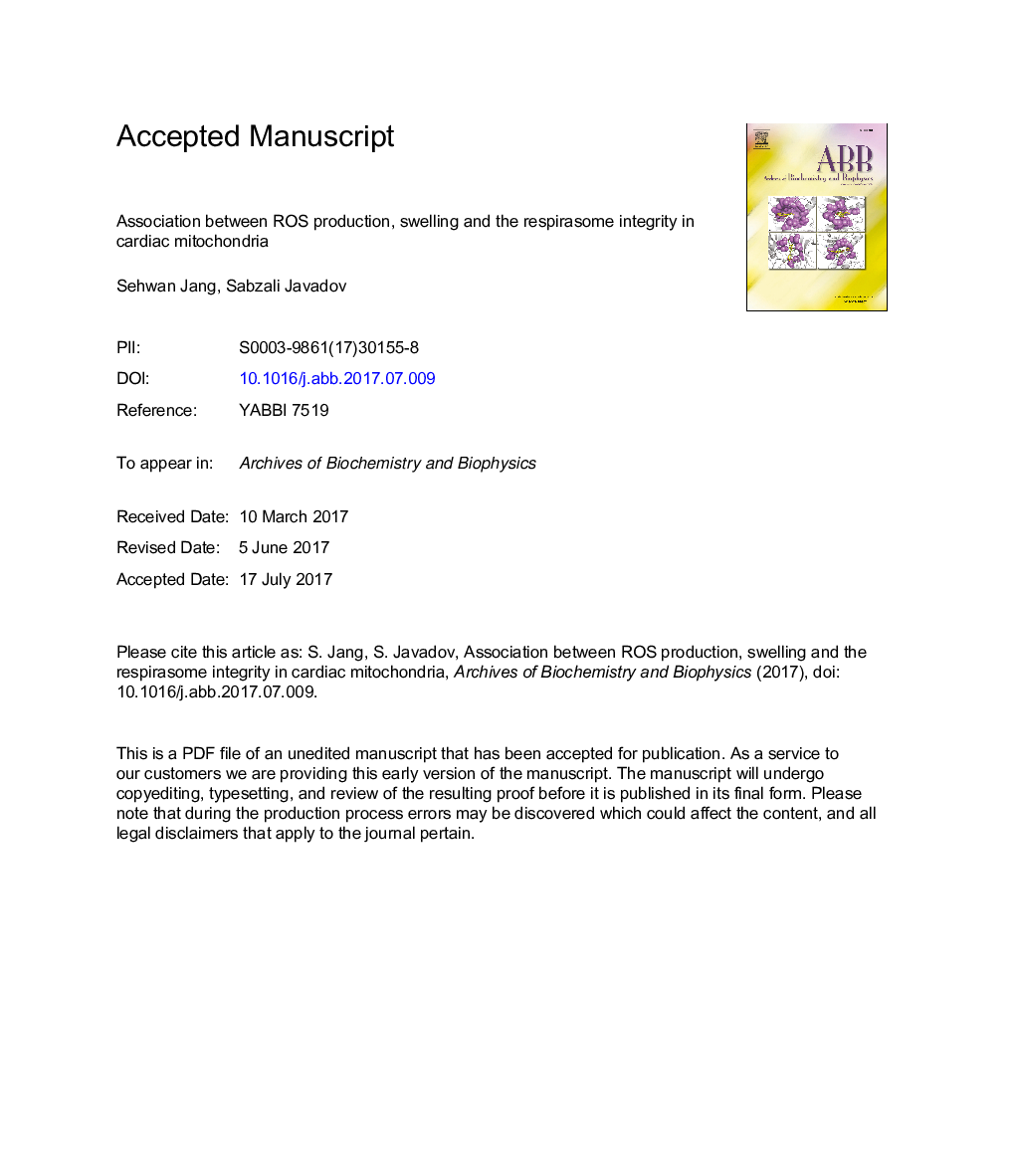| Article ID | Journal | Published Year | Pages | File Type |
|---|---|---|---|---|
| 5504307 | Archives of Biochemistry and Biophysics | 2017 | 34 Pages |
Abstract
Although mitochondrial Ca2+ overload and ROS production play a critical role in mitochondria-mediated cell death, a cause-effect relationship between them remains elusive. This study elucidated the crosstalk between mitochondrial swelling, ROS production, and electron transfer chain (ETC) supercomplexes in rat heart mitochondria in response to Ca2+ and tert-butyl hydroperoxide (TBH), a lipid-soluble organic peroxide. Results showed that ROS production induced by TBH was significantly increased in the presence of Ca2+ in a dose-dependent manner. TBH markedly inhibited the state 3 respiration rate with no effect on the mitochondrial swelling. Ca2+ exerted a slight effect on mitochondrial respiration that was greatly aggravated by TBH. Analysis of supercomplexes revealed a minor difference in the presence of TBH and/or Ca2+. However, incubation of mitochondria in the presence of high Ca2+ (1Â mM) or inhibitors of ETC complexes (rotenone and antimycin A) induced disintegration of the main supercomplex, respirasome. Thus, PTP-dependent swelling of mitochondria solely depends on Ca2+ but not ROS. TBH has no effect on the respirasome while Ca2+ induces disintegration of the supercomplex only at a high concentration. Intactness of individual ETC complexes I and III is important for maintenance of the structural integrity of the respirasome.
Related Topics
Life Sciences
Biochemistry, Genetics and Molecular Biology
Biochemistry
Authors
Sehwan Jang, Sabzali Javadov,
